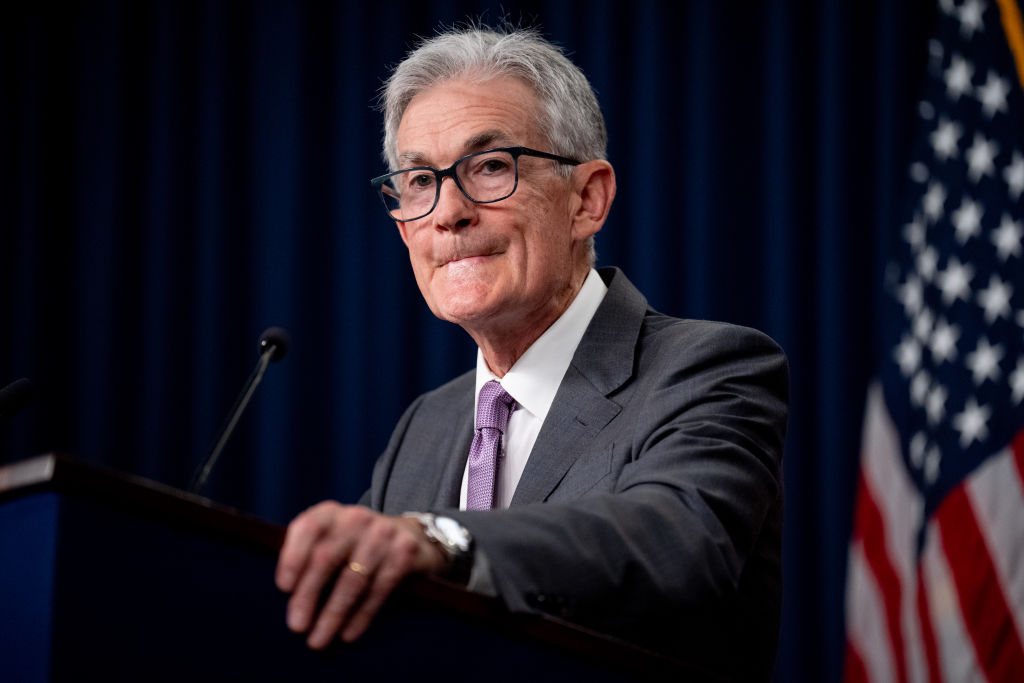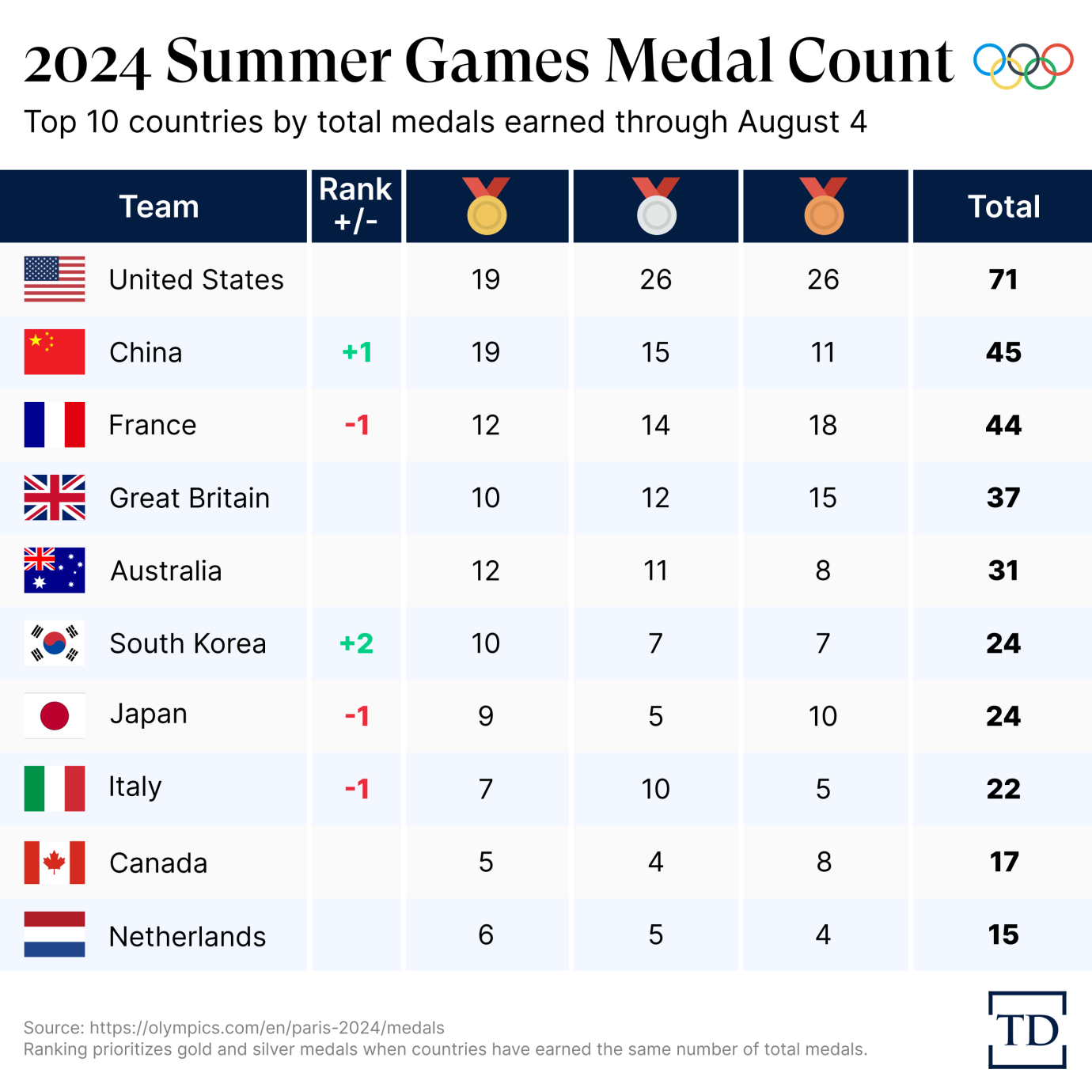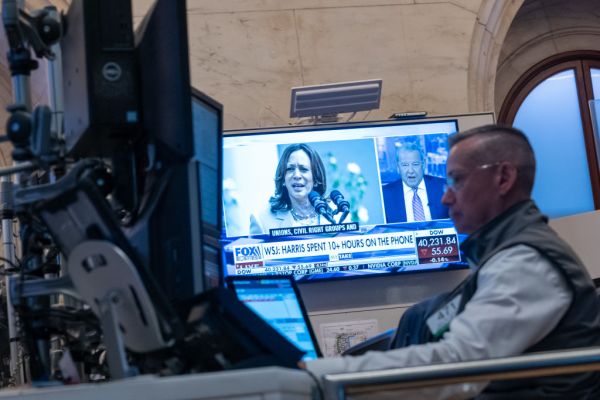Happy Monday! The word “weird” has been doing a lot of heavy lifting in the last few weeks as applied to the Republican ticket. Not to be outdone, Robert F. Kennedy Jr. admitted in a video filmed with … Rosanne Barr over the weekend that he dumped a dead bear cub—that he’d found hit by a car—in Central Park a decade ago and tried to make it seem like it had been hit by a bike.
Quick Hits: Today’s Top Stories
- The Israel Defense Forces (IDF) struck what it described as a Hamas “command and control” center in Gaza City on Saturday, which was reportedly being housed in a school. Hamas claimed the airstrike killed dozens of Palestinians, though the IDF said the school was used to hide and train terrorists, and to build and store explosive weapons. “Prior to the strike, numerous steps were taken to mitigate the risk of harming civilians, including the use of precise munitions, surveillance and additional intelligence,” the IDF said in a statement. Meanwhile, a Palestinian man stabbed and killed a 66-year-old woman and a man in his 70s—and left two others injured—near Tel Aviv in Holon, Israel, on Sunday morning in what law enforcement has labeled a suspected terrorist attack. Local police killed the assailant—a resident of the West Bank in his 20s who had illegally crossed into Israel—shortly after the stabbing spree began.
- Israel and Hezbollah—the Lebanon-based, Iranian-supported terrorist organization—exchanged light fire on Sunday, though neither side reported any casualties. Israel is bracing for major, coordinated attacks by Iran, Hezbollah, and other Tehran-backed militias across the region after two terrorist leaders were assassinated last week, likely by Israeli forces. Axios reported Sunday night that Secretary of State Antony Blinken told Group of Seven allies that attacks on Israel could begin as early as Monday. Ten countries—including the United States—issued warnings urging their civilians to leave Lebanon amid fears of escalating violence between Israel and Hezbollah.
- Vice President Kamala Harris clinched the Democratic nomination for president on Friday after securing enough votes during the Democratic Committee’s virtual roll call ahead of the convention later this month. On Sunday, Harris met with three vice-presidential finalists to join the party ticket—Sen. Mark Kelly of Arizona, Pennsylvania Gov. Josh Shapiro, and Minnesota Gov. Tim Walz—at the vice president’s office and residence in Washington, D.C. Harris is expected to select her vice presidential candidate today or tomorrow, with the two set to appear together at a Philadelphia campaign rally on Tuesday.
- Defense Secretary Lloyd Austin on Friday revoked a plea deal for three terrorists involved in plotting the attacks of September 11, 2001, who are being held at Guantánamo Bay. Detained since 2003, the trio had reached an unofficial plea agreement with United States military prosecutors last week that would have spared them the death penalty in exchange for life-long imprisonment. Austin rescinded the deal, saying in a memo that the “responsibility for such a decision should rest with me.” The details of the plea deal have not yet been released, and it remains unclear what motivated the Defense Department’s decision to reverse course.
- Venezuelan opposition leader María Corina Machado risked arrest on Saturday, emerging from hiding to address a mass rally of thousands of supporters in Caracas protesting incumbent socialist President Nicolás Maduro’s reelection claims, a result the U.S. officially considers fraudulent. Pro-Maduro forces have arrested more than two thousand protesters since government officials declared Maduro the winner in last Sunday’s election despite exit polls showing a landslide victory for opposition candidate Edmundo González. Venezuela election officials affiliated with Maduro’s regime have so far not released full election tallies.
- Bangladeshi government forces cracked down on student-led protests this weekend, leading to renewed clashes throughout the country that have killed dozens of people. Violent protests, which began in June over the lack of merit-based opportunities for Bangladeshi government jobs, have resulted in more than 200 deaths and thousands of injuries in total. Protest leaders are planning to march on the capital of Dhaka today to demand the resignation of authoritarian Prime Minister Sheikh Hasina, who has led the nation since 2009, while her government has implemented a nationwide curfew of 6 p.m.
- Al-Shabaab—an affiliate of the Islamic terrorist organization al-Qaeda—took responsibility for a beachfront hotel attack that killed at least 32 people and left more than 60 injured in Somalia’s capital city, Mogadishu, late Friday. An Al-Shabab suicide bomber detonated his vest outside the hotel on Friday night, and armed men entered the hotel shortly after and took civilians hostage. The violent confrontation ended early Saturday morning when Somali law enforcement stopped what it identified as all five attackers—four of whom were killed, and the other captured and detained.
- Tropical Storm Debby—which strengthened into a Category 1 hurricane overnight—is on course to make landfall in Florida this morning. Debby whirled through the Gulf of Mexico on Sunday—at maximum sustained winds of 80 miles per hour—and is expected to make its way up the Southeast coast this week.
Recession Watch?

Economic analysts have been predicting a recession for years at this point, with the thought being that the economy would eventually need a hard correction to account for levels of inflation not seen in 40 years. But just about every economist has been wrong at some point over the last two years about the precise timing of when that inevitable recession would come, and many had begun to think the economy could manage a “soft landing,” in which the inflation rate falls back to normal without an accompanying rise in the unemployment rate.
Well, it was nice while it lasted. A weaker-than-expected jobs report on Friday—which came just two days after the Federal Reserve opted to keep interest rates at their current elevated levels—signaled that the much-anticipated downturn could finally be here.
The unemployment rate rose to 4.3 percent in July, according to the Bureau of Labor Statistics employment report released on Friday—up from 4.1 percent in June. Employers added just 114,000 new jobs last month, well short of economists’ consensus expectations of 175,000. The report revised May and June’s numbers downwards, meaning there were fewer new jobs in the last three months than previously thought, and the number of weekly unemployment claims reached an 11-month high last week—all further signs of a weakening labor market.
The Federal Open Market Committee on Wednesday held interest rates steady at a target range of 5.25 to 5.5 percent, but the central bankers suggested they could begin to cut rates soon—and Friday’s jobs report makes a rate cut (or two) at the Fed’s meeting in mid-September all the more likely. “The broad sense of the committee is that we’re getting closer to the point at which it will be appropriate to reduce our policy rate, but that we’re not quite at that point yet,” Fed Chair Jerome Powell said last week. “If the labor market were to weaken unexpectedly or inflation were to fall more quickly than anticipated, we are prepared to respond.”
The poor jobs numbers triggered what is known as the Sahm Rule, a set of conditions that have for 50 years been viewed as a harbinger of recession. If a three-month average of the unemployment rate is at least half a percent higher than the best reading over the preceding 12 months, then the economy is likely in the early stages of a recession—or so goes the rule posited by Claudia Sahm, the former principal economist at the Federal Reserve Board of Governors.
But the indicator being triggered isn’t itself proof of a recession—Sahm herself has insisted that her eponymous rule is an “empirical regularity” but “not a law of nature.” Recessions are typically defined as at least two consecutive quarters of declining gross domestic product (GDP). That said, the United States’ bumpy post-pandemic economic recovery has frustrated that definition of a recession, too: GDP contracted in the first two quarters of 2022, but a broader downturn did not follow. The Commerce Department’s advance GDP estimate released last month showed real GDP grew at a 2.8 percent annual rate in the second quarter of 2024, following 1.4 percent annualized growth during the first three months of the year. “The U.S. outlook remains solid,” Treasury Secretary Janet Yellen said late last month in reaction to the GDP report. “We saw consumer spending continue at a solid pace,” she noted, adding, “We have a job market that is about the strongest that we’ve seen in 50 years.”
Even if GDP is looking okay, it’s one bright spot in an otherwise cloudy economic landscape. “I don’t look at this big picture and say, ‘We are in a recession,’” Sahm said Friday. “But I look at this and I say we’re not headed in a good direction at all.” The markets soured in reaction to the jobs report, with the Dow Jones Industrial Average dropping more than 600 points by Friday’s close. The NASDAQ also fell 2.4 percent as tech stocks took a hit. As one of our editors implored us during our editorial meeting on Friday, it’s probably best to avoid checking your 401k for a little bit. (We are, of course, not financial advisers, but that tip is looking like it might be worth following today, too.)
Unexpected weakening in the labor market could disrupt the path to that goldilocks “soft landing” scenario. The resilience of consumer spending and the jobs market helped the economy buck predictions of a recession throughout 2023, but creeping unemployment can tip into a recessionary doom spiral, as unemployed people spend less, and that decrease in spending can prompt jobs cuts by businesses, which further hurts spending. “Labor demand is slowing more abruptly than we and the Fed probably expected,” said Kathy Bostjancic, the chief economist at Nationwide. “What we don’t know is, is this moderation in labor market demand—is that consistent with a soft landing or something harder or bumpier?”
Powell signaled at the central bankers’ meeting on Wednesday that inflation had come down enough for the Fed to focus more on the other half of its dual mandate—promoting full employment. “I don’t now think of the labor market in its current state as a likely source of significant inflationary pressures,” he said. “I would not like to see material further cooling in the labor market.”
The market believes there’s a 75 percent chance the Fed will cut rates by 50 basis points in September, according to CME Group’s FedWatch tool, with the remaining 25 percent believing a more traditional 25-basis-point cut is more likely. Some Democratic lawmakers are criticizing the Fed—which is intended to operate independently of political pressure—for not cutting rates already. “Fed Chair Powell made a serious mistake not cutting interest rates,” Sen. Elizabeth Warren of Massachusetts tweeted Friday. “He’s been warned over and over again that waiting too long risks driving the economy into a ditch.” Warren and two of her Democratic colleagues—Sens. John Hickenlooper of Colorado and Jacky Rosen of Nevada—sent a letter to Powell in June calling for rate cuts.
Political scrutiny of the Fed’s decision-making will only increase as the election draws near. Republicans have hammered the Biden administration on inflation for years, and higher prices remain a central part of the Trump campaign’s messaging against Vice President Kamala Harris. Until now, President Joe Biden has relied on the strength of consumer spending and historically low unemployment to rebuff complaints of high prices while the Fed has worked to bring inflation under control.
Harris, now the presumptive Democratic nominee, has taken a slightly different tack on inflation, touting the progress that has been made, but also admitting there’s more work to be done. “Prices are still too high—you know it and I know it,” she said at a rally in Atlanta last week. Former President Donald Trump has already suggested that he’ll portray any rate cut before the election as Powell colluding with Democrats. “I think he’s going to do something to probably help the Democrats, I think, if he lowers interest rates,” Trump told Fox Business in February.
But the central bank is unlikely to move aggressively—like cutting half a point instead of just a quarter—based on one poor report. Ryan Street, the chief U.S. economist at Oxford Economics, said that the jobs numbers were “disappointing, but I don’t think we want to get too high or too low on the labor market based on a single month.” He argued that “temporary factors” in July, like poor weather conditions, could portend a better outlook next month. The Fed said that Hurricane Beryl had “no discernible effect” on the unemployment numbers, but a record 436,000 people reported that they had a job but couldn’t work due to weather in July. What’s more, 249,000 people reported being laid off temporarily, accounting for more than 70 percent of the increase in the jobless rate. The Fed will see August’s jobs numbers before their next meeting.
At this point, the Fed may be damned if it does, damned if it doesn’t. Many analysts now believe Powell waited too long to raise rates back in early 2022, when some economists warned of the potential for inflation to get out of hand. But the current armchair central banking from some analysts about cutting rates belies the fact that monetary policy is ultimately a blunt instrument, and it’s challenging to balance the risks of inflation and unemployment even in the best of circumstances.
“In hindsight the Fed made a mistake when it kept the [Federal Funds Rate] unchanged on [Wednesday],” Jason Furman, an economics professor at Harvard University and former director of the National Economic Council in the Obama administration, tweeted Friday. “But in hindsight they always make mistakes—there are risks on both sides.”
Worth Your Time
- In the New York Times, our old friend David French interviewed Supreme Court Justice Neil Gorsuch ahead of the release of Gorsuch’s new book—Over Ruled: The Human Toll of Too Much Law—later this week. “I’ve been a judge for about 18 years now,” Gorsuch told French of the reasoning behind the book. “And I just have seen so many cases in which ordinary, hard-working, decent Americans, trying to do their best and intending no harm to anyone, just get caught up in a wall of rules or laws that they didn’t know existed. … The founders also knew that too much law poses some dangers as well. James Madison talked about that in The Federalist, and he said a couple of things happen. One, you start losing your liberties. And two, it impacts different populations differently. So the moneyed and the connected can find their way through a maze of litigation and through a maze of regulation. But what about ordinary Americans?”
- A widespread push to oust controversial professors from their academic positions—what some may call “cancel culture”—is often a left-wing problem. Writing in Newsweek, Rachel Dobkin showed that’s not always the case. “An increasing number of academics are speaking out about Christian colleges, claiming they were forced out of their jobs because of the rising intensity of conservative politics on campuses,” she wrote. The professors say they’ve been booted for “being perceived as too liberal, even if they didn’t identify as such. … Matt Warner started at Grace College in Indiana as a communications professor in the fall of 2023. Six weeks into his employment, local activists came across his social media posts spanning 10 years. … He claimed they then started a ‘smear campaign’ and ‘tried to get him fired.’” They ultimately succeeded, and Grace College chose to not renew Warner’s contract. “Warner claimed that people like himself can be forced out of their institutions for a multitude of reasons, which are almost always outside the bounds of the institutions’ written policies: ‘Whether that’s opposition to [former President] Donald Trump, whether that’s not having strong convictions on LGBTQ+ issues … whether it’s support of Black Lives Matter … or even being a member of the wrong denomination.’”
Presented Without Comment
Washington Post: Trump Congratulates [Russian President Vladimir] Putin Over Deal That Brought Evan Gershkovich Home
Also Presented Without Comment
Atlanta Journal-Constitution: Jimmy Carter’s Next Goal is Voting for Kamala Harris for President
In the (Olympic) Zeitgeist
It was a big, history-making weekend for Americans at the Olympics. Bobby Finke set a world record in the 1,500-meter freestyle swim; Noah Lyles was crowned “fastest man alive” when he won the 100-meter dash by mere thousandths of a second, breaking a 20-year drought for the U.S.*; Katie Ledecky won her ninth career gold medal, after winning the 800-meter freestyle race that started it all for her when she was just 15; Simone Biles won gold in the vault competition and teammate Jade Carey took bronze; Scottie Scheffler came from behind to win the golf competition; and cyclist Kristen Faulkner stunned with an unexpected victory in the 98-mile road race that finished in the shadow of the Eiffel Tower.
So, you know, just another day at the office.

Toeing the Company Line
- In the newsletters: The Dispatch Politics team—joined by Morning Dispatcher Grayson—reported on former President Donald Trump’s new race-based line of attack, Jonah dove into the problems politicians can run into when they pander, Chris argued that (🔒) Pennsylvania Gov. Josh Shapiro could help pivot Harris’ presidential campaign toward the center, and Jake Meador explained in Dispatch Faith how post-liberal Christians came to embrace a political movement he argues is at odds with their values.
- On the podcasts: Jonah ruminated on Social Darwinism falsehoods, the pronunciation of “Kamala,” and Trump’s latest attack on Harris.
- On the site over the weekend: Kevin argued Trump compares unfavorably to Hannibal Lecter, former Dispatcher Alec Dent returned for a review of the latest Marvel movie, Deadpool & Wolverine, and Warren Cole Smith laid out what the Daily Wire’s Megan Basham got wrong in her new book Shepherds For Sale: How Evangelical Leaders Traded The Truth for a Leftist Agenda.
- On the site today: Daniel Di Martino writes about what comes next for Venezuela after Nicolás Maduro’s sham election victory and Rebeccah Heinrichs looks into what Kamala Harris’ foreign policy might look like—and doesn’t like what she sees.
Let Us Know
How would you grade the Federal Reserve’s handling of inflation over the past few years? Are accusations of central bankers acting “politically” fair?
Correction, August 5, 2024: Noah Lyles’ victory in the 100-meter dash over the weekend broke a 20-year drought for the United States, not a 40-year drought. American sprinter Justin Gatlin won gold in the event in 2004.











Please note that we at The Dispatch hold ourselves, our work, and our commenters to a higher standard than other places on the internet. We welcome comments that foster genuine debate or discussion—including comments critical of us or our work—but responses that include ad hominem attacks on fellow Dispatch members or are intended to stoke fear and anger may be moderated.
With your membership, you only have the ability to comment on The Morning Dispatch articles. Consider upgrading to join the conversation everywhere.